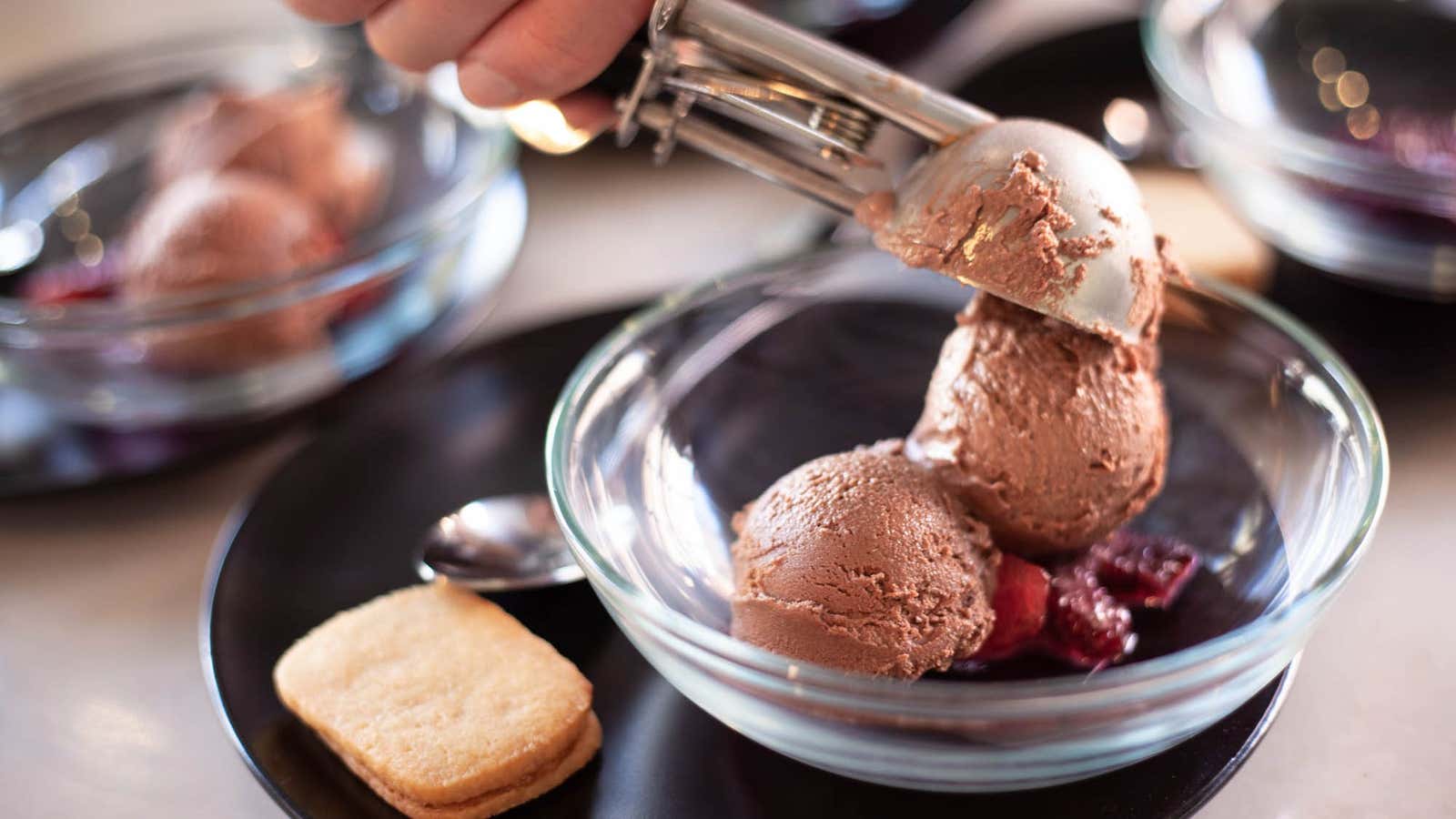Soon, one of Silicon Valley’s most talked about food tech companies will wade into grocery store dairy sections with a bold line of new foods. Perfect Day—which in 2014 year found a way to use yeast to make milk protein without ever needing a cow—announced today (July 11) that it will be scaling up its microbial technology with the help of some of the food industry’s biggest companies.
In the process, the Bay Area startup is creating a whole new category of food. You’ve heard of plant-based foods; next, you’ll be able to eat “flora-based” food.
That’s the term co-founders Ryan Pandya and Perumal Gandhi settled on to describe products made using microorganisms—including the yeast they use to create casein, the main protein found in cow milk. Perfect Day claims its yeast-based milk proteins have all the functionality and taste of the milk proteins food companies have extracted from dairy for more than a century, but with none of the environmental downsides.
It takes a lot of energy to grow and transport the animal feed that dairy cows eat. And those cows produce a lot of methane that winds up in the Earth’s warming atmosphere. Perfect Day says its product will allow food manufacturers who sell ice cream, sour cream, cheeses, butter, milk, and other dairy products to use their protein instead of the kind they’ve traditionally gotten from milk.
To roll out the concept to the general public, the company is selling a limited-batch of 3,000 containers of flora-based ice cream on its website for $20 apiece (a cost that includes shipping in dry ice). By engaging and educating people about the new category of food, the company hopes to get ahead of any questions people might have about it.
One of those questions sticks out like a sore thumb, and that’s because it’s right on the label. The protein Perfect Day uses may not come from cow milk, but it’s still technically milk protein—and that’s what’s printed on the ingredients list, because that’s how the US Food and Drug Administration regulates product labeling. But for an everyday shopper that might be confusing.
“We need to start building value around this third category,” Gandhi says. To do that, he wants to tackle confusion head-on, explaining how their new flora-based milk protein is different from the kind that comes from cows. The company’s protein product is made by altering sections of the DNA sequence of food-grade yeast such that the microorganisms, once fed with certain nutrients, produce several key proteins found in milk, including casein and whey.
In the coming months, the startup says it will roll out announcements of partnerships with other food companies. Perfect Day isn’t looking to push food out under its own label so much as it wants to license its technology to other companies; those partners will incorporate it into their recipes and print the Perfect Day logo somewhere on their own product packaging. That will be more possible as the massive Archer Daniels Midland company works with Perfect Day to scale up the supply of yeast-based milk protein available to the market.
